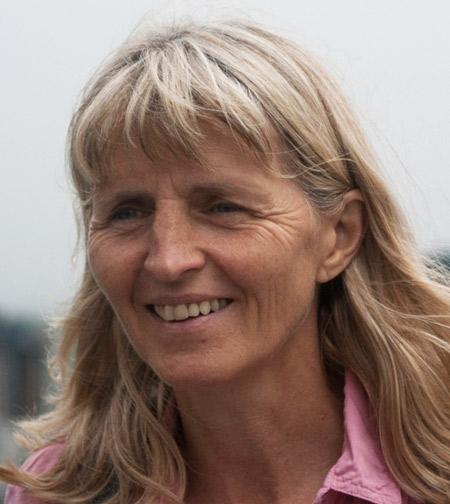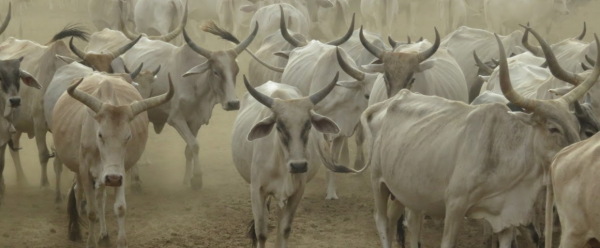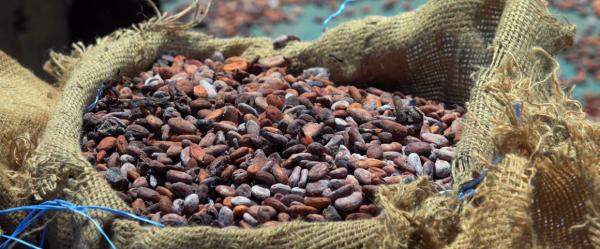Expert view 23 January 2026
- Home
- CIRAD news
- News
- Marie-Claude Deboin - Open science in North and South
Open science for global science, a collective challenge in both North and South

Does open science as defined in recent years mean free, full access to the products of science?
Marie-Claude Deboin: The notion of open science encompasses the principles and practices of collaboration and sharing. The aim is to be able to pool the products of research and make them universally available. Yet this must be done in line with international and national regulations and conventions. Ensuring collaboration, transparency and openness in this way serves to make research more rigorous and reproducible, to benefit the scientific community and beyond, including civil society and the economic world, particularly in the case of publicly funded research. Anyone should be able to access the results of such research, take them on board and improve on them. For instance, a start-up may use freely accessible results to develop an application or a new service. Open science is a new breeding ground for innovations and jobs.
The "Science ouverte au Sud" symposium is being held from 23 to 25 October 2019 in Dakar. What are the issues surrounding open science for countries in the global South in particular?
M-C. Deboin: People have only relatively recently become aware of open science. That awareness was boosted in 2013 with the launch of the international Research Data Alliance (RDA). More recently, in 2018, France published a national open science plan, which includes an obligation to provide open access to all publications and data resulting from publicly-funded research. However, open science requires further testing, in every world region. Such tests have raised questions that had not previously been formally asked. What status should be given to data co-produced by several organizations? Who owns those data? Who decides on the re-use of data produced in another country? Under what conditions can they be re-used?
The questions are the same in North and South. However, some countries in the global South still face major issues in terms of reliable infrastructures and connectivity. Enforcing the principle of universal data availability should not mean putting those countries, particularly those in Africa, in a double scientific and technological divide that would prevent them accessing and using research outputs.
This transition to open data needs to be fully supported by governments and donors, to make research more effective and more widely recognized. This is a collective issue, since by giving access to raw and secondary data, scientists allow others to adopt those data and re-use them in order to make progress. Being credited with those results gives them and their organizations greater visibility, credibility and notoriety, and contributes to global science.
What are the obstacles to open science today?
M-C. Deboin: The main hindrance is the fear of losing the opportunity to gain from a result in scientific and economic terms, and the worry that it will benefit someone else. This is why awareness raising and education are vital: the aim is to judge the value for a community of the future results of a project, including data and publications, at an early stage. Research teams can easily benefit from a period of non-dissemination of all or some of the data produced prior to opening access. During that time, they have the opportunity to derive scientific, economic or commercial benefits.
There is also a degree of graduation and a regulatory framework when opening access to results, whether publications or raw data. There should be associated access and usage conditions, such as giving credit, not-for-profit re-use, or a ban on modifying the results in question. This tallies with the Creative Commons tool and other free licence systems. However, certain sensitive data, for instance personal data, cannot be made fully open. The most important thing is for open access to be governed by a legal or regulatory framework and ethical rules.
What has CIRAD done for open science?
M-C. Deboin: A publication, like a research article, is supposed to contain original results. Those results are backed by one or more data obtained through observation, experimentation, gathering or modelling. The first stage is to provide access not just to the publication but to the dataset that backs up the results in the article. Those data prove the reliability and soundness of the result presented, and should be available for reproduction.
To this end, in 2015, CIRAD made its historical publications base Agritrop into an open archive. The base provides free access, providing the author's rights are respected, to the publications on agricultural research and rural development in the countries of the global South produced or co-produced by CIRAD scientists. Agritrop now also provides any available link or links to the datasets associated with articles. The open archive currently offers 103 000 references and 40 000 full-text documents, with open access to 23 000 of them.
An institutional data platform, Dataverse Cirad, was launched in 2018. It currently offers 87 datasets representing 418 files. It is dedicated to low-volume data, and supplements the international specialist platforms - on genomics, ecology, etc - to which some scientific groups within CIRAD have been contributing for many years, by depositing the data produced by their research. Open science is also expressed through disciplinary or thematic communities, giving them the opportunity to join forces and progress side by side.
The first international symposium on open science in the global South
IRD, CIRAD and Cheikh Anta Diop University (UCAD) are organizing the first international symposium on open science in the global South from 23 to 25 October at UCAD's Institut Confucius in Dakar (Senegal). A large number of players – researchers, scientific information professionals, representatives of research organizations – will be discussing the issues surrounding open science in the global South.
CIRAD will be leading workshops on:
- intellectual property and legal aspects of data
- including data management plans (DMPs) when designing projects
- data platform usage.
CIRAD and the digital transition
The digital transition is one of the tangible aspects of global changes that are impacting on scientific practices and associated activities. New products and services are emerging, some of which have raised ethical and legal issues (open science, open data, etc). While digital technologies are not a new topic for CIRAD, it is now more deeply committed to them and has made them a major element in its own development.
Examples of projects
Digital training, data management and use in support of agricultural decisions aimed at countering drought in the Sahel, coordinated by CIRAD, Agreenium and the Agrhymet regional centre, as part of the Appui au Développement de l’Enseignement Supérieur Français en Afrique (ADESFA) project led by the French Ministry for Europe and Foreign Affairs
Projects involving CIRAD, IRD and INRA, funded by the Agence nationale de la Recherche under the national open science plan:
- DATA4C+ Interoperability of databases on soil carbon within the 4 per 1000 initiative
- BRIDGE (Bridge Research through Interoperable Data Governance and Environments), due to begin in November 2019
- FooSIN - French participation in the GO FAIR Food Systems Implementation Network.



























